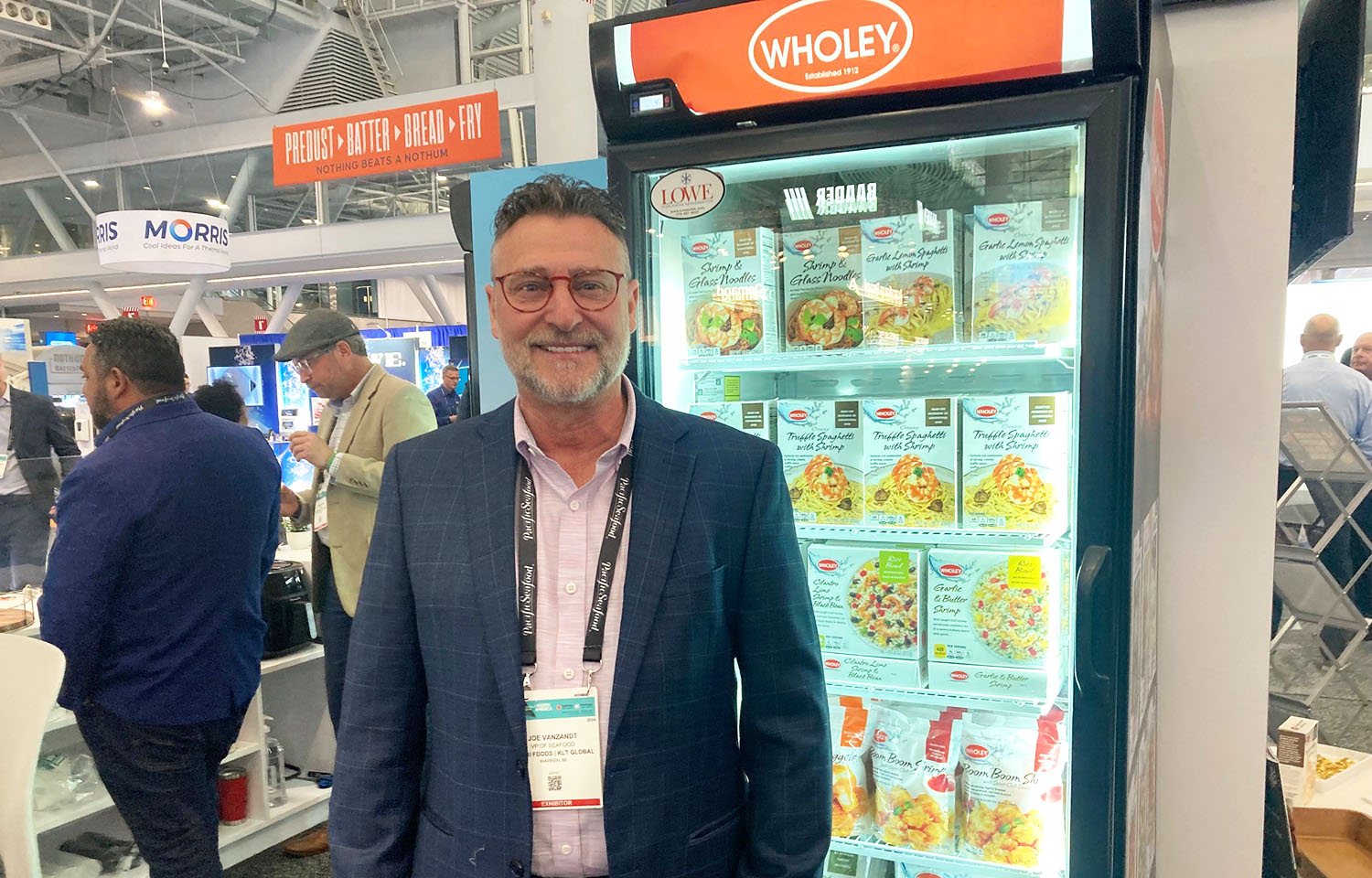Robert Wholey & Co. started its seafood business in the 1980s, claiming to be the first company to offer a bag of fish for retail customers in the United States.
When Lipari Foods acquired Wholey’s in 2007, the company had four SKUs of bagged fish – whiting, croaker, sea trout, and flounder.
“That was it. It was about as basic as it gets,” Lipari Foods Vice President of Seafood Joe VanZandt said. “Today, we have about 125 SKUs.”
VanZandt, who has a long history working in the grocery business, including decades at such chains as Publix and Albertson’s, worked his way up at Lipari, becoming a director and then vice president, growing his career with the Wholey brand of seafood products over the past 15 years.
“When we bought Wholey, we really took a hard look at how we could improve [our seafood offerings],” VanZandt told SeafoodSource at the 2024 Seafood Expo North America in Boston, Massachusetts, U.S.A. in March. “At the time, there really wasn't a whole lot of retail fish available, so we started doing croaker; then, we started doing value-added stuff like boil-in-a-bag and breaded popcorn shrimp, butterfly shrimp, and coconut shrimp. It just progressed from there.”
Now, from its base in Warren, Michigan, U.S.A., Wholey releases an entirely new line of seafood products annually, requiring a year-round product development process that requires an international procurement, development, quality assurance, logistics, and sales team.
“We’re looking for innovation, but we also make everything align with our core value of keeping a good-quality product. To quote Robert Wholey, ‘Cheap fish isn't good, and good fish isn't cheap,’” VanZandt said. “We don't want to cheapen it because if we did that, we’re not going to get the repeat business – the people who come back to you, even at a premium price. Lipari is insistent that whatever brand they buy, it has to operate at a very high standard.”
Wholey relies on certifications such as Best Aquaculture Practices and insists on sourcing shrimp free of sodium tripolyphosphate, according to VanZandt.
“We do our own testing because we want to make sure we have the best, and part of that is we want to keep it as clean as possible,” VanZandt said.
Wholey products are distributed across ...








